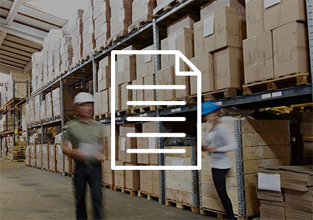Rise Against Hunger
Home / Rise Against Hunger
Rise Against Hunger Grows its Global Impact with NetSuite
Since its founding in 1998, Rise Against Hunger has distributed more than 360 million nutritious meals to people in need around the globe in 74 countries. The nonprofit also focuses on community empowerment and emergency relief, with a goal to end hunger by 2030. Its impact is rapidly expanding—the number of meals packaged leapt from 50 million in 2014 to 64 million in 2016. In 2016 alone, Rise Against Hunger engaged more than 376,000 volunteers in its efforts and nourished more than 1 million people.

COMPANY
Rise Against Hunger
LOCATION
Raleigh, N.C.
INDUSTRY
Nonprofit
EMPLOYEES
143
REVENUE
$38.9 million
NUMBER OF USERS
7
NUMBER OF COUNTRIES
6
OTHER SOLUTION CONSIDERED
Intacct
SYSTEMS REPLACED
QuickBooks, Excel
NETSUITE PRODUCTS IMPLEMENTED
NetSuite, Financial Planning, Fixed Assets
IMPLEMENTATION PARTNER
LOCATION
Raleigh, N.C.
LEARN HOW CLOUD ERP CAN STREAMLINE YOUR BUSINESS.

“On the finance side, NetSuite helps us keep the organization lean so we can commit more resources to our programs.”
- Roberta Sorensen, Controller, Rise Against Hunger
Nonprofit Gains Efficiency to Focus More Resources on its Mission
Lean operations and better
insights
insights
- Backed by a donation from Oracle NetSuite Social Impact, Rise Against Hunger graduated from QuickBooks to NetSuite’s cloud solution for greater efficiency and visibility amid rapid growth. Selected over Intacct, NetSuite supports financials, budgeting and forecasting, with rich reporting for better decision-making so the nonprofit can focus more resources on its mission.
- Rise Against Hunger has modernized finance with NetSuite. It’s now able to build multi-year budgets and has cut payment approvals from eight days to 24 hours. It’s saving six hours a month on financial reporting and has reduced its monthly close from 34 to 26 days, all while accommodating a 26 percent growth in revenue and a 2x increase in transactions since NetSuite went live in 2015.
Modernizing financials and
forecasting
forecasting
Cloud scalability amid rapid
growth
growth
- In a next step, Rise Against Hunger plans to use NetSuite inventory management to more cost-effectively manage and transport meals packaged at 20 U.S. locations and 25 more around the world. The efficiency and transparency realized with NetSuite supports a high rating on Charity Navigator, driving additional donations that help the nonprofit in its efforts to end hunger.
































